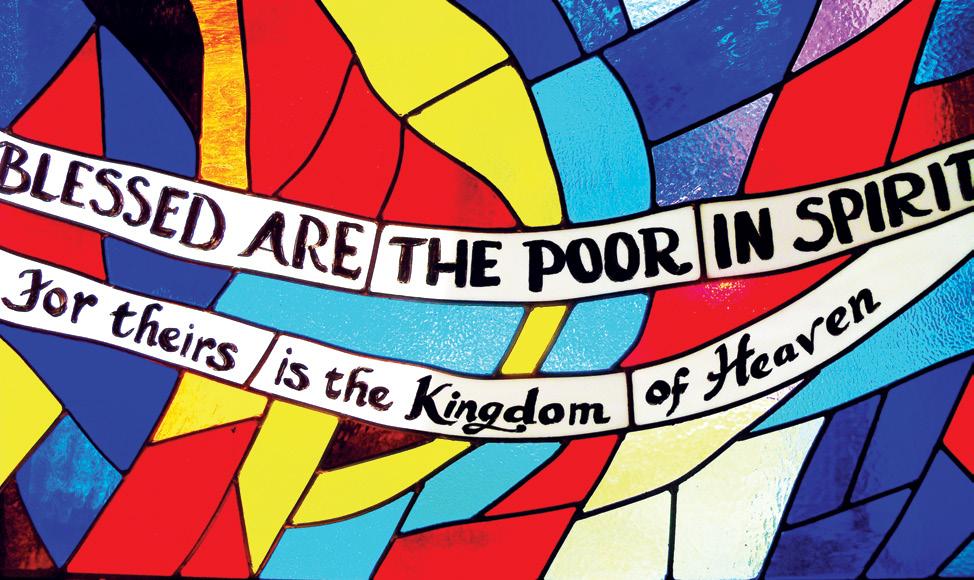
3 minute read
Further In and Higher Up
Disciples are never losers
God does not finally expect you to make any sacrifice for him. There is no cost to following Jesus, at the end of the day. Let’s quickly qualify that. I said “finally” and “at the end of the day.” For the time being there can be costs to following Jesus, and Jesus says whoever does not count those costs is unworthy of being his disciple. In the immediate future, following Jesus will “cost” your old, sinful nature, if you reckon that a loss. Short-term you may lose your family, money, and security. You may lose your life.
Do you believe me if I tell you that all those “costs” are like saying that a winning lottery ticket will “cost” you? Does a lotto winner lie awake at
night wondering what else could have been done with those three dollars? Does Christ finally ask us to give up life, health, wealth, and pleasure for his sake? Doesn’t he rather save us from the horrific investment scam that is the world and direct us to lasting, satisfying, abundant and real pleasures? “I consider that our present sufferings are not worth comparing with the glory that will be revealed in us” (Romans 8:18).
But we modern people have a hard time feeling this joy deep in our bones. It seems we struggle more with the problem of evil than our ancestors. Our pain and suffering are a more vexing problem for us because the math by which we calculate whether it is “worth it” tends only to figure this world.
I have a book called The Heavenly City of the Eighteenth-Century Philosophers by Carl L. Becker. Becker argues that philosophers setting up the modern world took the old medieval hope of heaven and transposed it into something doable in this world, using science and reason. But once this life is all there is, this life by itself must be worth it. The biblical promise of heaven no longer inspires us to see meaning in our suffering. It no longer inspires us to believe that our losses here are merely giving up what we cannot keep to gain what we cannot lose (to quote Jim Elliot).
And thus, death becomes the “ultimate sacrifice.” Notice how that phrase has crept into our speech. To give up marriage, wealth or happiness in this life makes no sense. Give it up to gain what?
Jesus the pioneer of our salvation did not consider his crucifixion an “ultimate sacrifice” in the way modern people think about suffering. Jesus saw the cross as an investment to gain a vast pleasure. For the sake of the joy set before him he endured the cross, despising its shame (Hebrews 12:2). Christ’s derision of the cross is what I am pointing to as Christian suffering. This is not to minimize the lengths to which God went to secure our salvation but only to put things in proportion. Christ gave his life because he considered it a bargain to gain fellowship with us forever.
Christ throws out a fierce dare to all who hear: “I challenge you to sell your possessions and give them to the poor. I dare you to forgo marriage for the sake of the kingdom. Go ahead and become a fool for my sake. Just try to outgive me; you can’t do it.”
So, what are you waiting for?
By Layton Friesen










